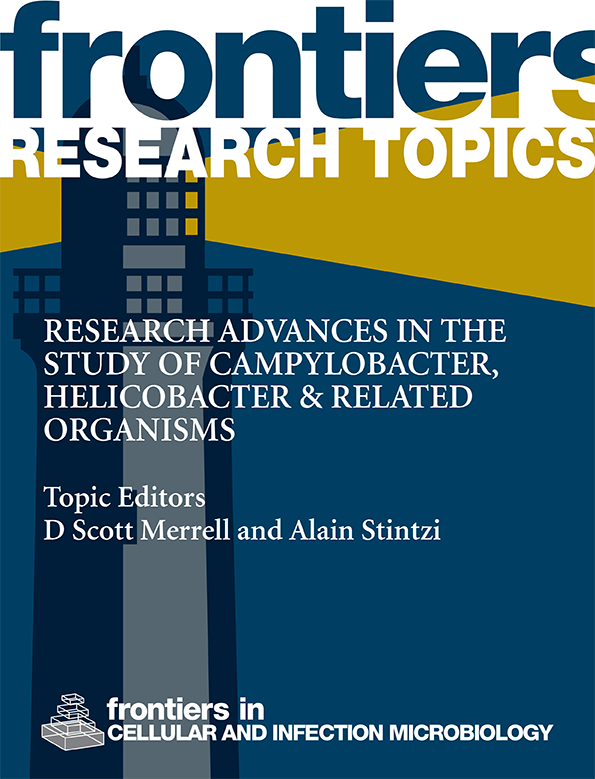Frontiers | Exploring the gut microbiota's effect on Temporomandibular joint disorder: a two-sample Mendelian randomization analysis
IF 4.6
2区 医学
Q2 IMMUNOLOGY
Frontiers in Cellular and Infection Microbiology
Pub Date : 2024-07-19
DOI:10.3389/fcimb.2024.1361373
引用次数: 0
Abstract
BackgroundTemporomandibular joint disorders (TMD) are highly prevalent among people. Numerous investigations have revealed the impact of gut microbiota in many diseases. However, the causal relationship between Temporomandibular joint disorders and gut microbiota remains unclear.MethodsGenome-Wide Association Studies (GWAS) refer to the identification of sequence variations, namely single nucleotide polymorphisms (SNPs), existing across the entire human genome. GWAS data were collected on gut microbiota and TMD. Then, instrumental variables were screened through F-values and removal of linkage disequilibrium. These SNPs underwent mendelian analysis using five mathematical models. Sensitivity analysis was conducted to further verify the stability of the results. Pathogenic factors of TMD mediate the causal relationship between gut microbiota and TMD were explored through a two-step Mendelian randomization analysis. Finally, reverse mendelian analysis was conducted to account for potential reverse effects.ResultsThe analysis of the data in this article suggests that some gut microbiota, including Coprobacter, Ruminococcus torques group, Catenibacterium, Lachnospiraceae, Turicibacter, Victivallis, MollicutesRF9, Methanobacteriales, Methanobacteriaceae, FamilyXI, Methanobacteria were identified as risk factors, while Peptococcaceae provides protection for TMD.ConclusionThe research reveals the relation of gut microbiota in TMD. These findings provide insights into the underlying mechanisms and suggest potential therapeutic strategy.前沿 | 探索肠道微生物群对颞下颌关节紊乱的影响:双样本孟德尔随机分析
背景颞下颌关节疾病(TMD)在人群中发病率很高。大量研究揭示了肠道微生物群对多种疾病的影响。方法全基因组关联研究(GWAS)是指识别存在于整个人类基因组中的序列变异,即单核苷酸多态性(SNPs)。我们收集了有关肠道微生物群和 TMD 的 GWAS 数据。然后,通过 F 值和去除连锁不平衡筛选工具变量。利用五个数学模型对这些 SNP 进行了泯灭分析。为了进一步验证结果的稳定性,还进行了敏感性分析。通过两步孟德尔随机分析,探讨了 TMD 的致病因素是否介导了肠道微生物群与 TMD 之间的因果关系。最后,还进行了反向孟德尔分析,以考虑潜在的反向效应。结果本文对数据的分析表明,一些肠道微生物群,包括铜杆菌属、瘤胃反刍球菌属、卡滕杆菌属、Lachnospiraceae、Toricibacter、Victivallis、MollicutesRF9、Methanobacteriales、Methanobacteriaceae、FamilyXI、Methanobacteria被确定为风险因素,而肽球菌科则为TMD提供保护。研究揭示了肠道微生物群与 TMD 的关系,这些发现有助于深入了解 TMD 的内在机制,并提出了潜在的治疗策略。
本文章由计算机程序翻译,如有差异,请以英文原文为准。
求助全文
约1分钟内获得全文
求助全文
来源期刊

Frontiers in Cellular and Infection Microbiology
IMMUNOLOGY-MICROBIOLOGY
CiteScore
7.90
自引率
7.00%
发文量
1817
审稿时长
14 weeks
期刊介绍:
Frontiers in Cellular and Infection Microbiology is a leading specialty journal, publishing rigorously peer-reviewed research across all pathogenic microorganisms and their interaction with their hosts. Chief Editor Yousef Abu Kwaik, University of Louisville is supported by an outstanding Editorial Board of international experts. This multidisciplinary open-access journal is at the forefront of disseminating and communicating scientific knowledge and impactful discoveries to researchers, academics, clinicians and the public worldwide.
Frontiers in Cellular and Infection Microbiology includes research on bacteria, fungi, parasites, viruses, endosymbionts, prions and all microbial pathogens as well as the microbiota and its effect on health and disease in various hosts. The research approaches include molecular microbiology, cellular microbiology, gene regulation, proteomics, signal transduction, pathogenic evolution, genomics, structural biology, and virulence factors as well as model hosts. Areas of research to counteract infectious agents by the host include the host innate and adaptive immune responses as well as metabolic restrictions to various pathogenic microorganisms, vaccine design and development against various pathogenic microorganisms, and the mechanisms of antibiotic resistance and its countermeasures.
 求助内容:
求助内容: 应助结果提醒方式:
应助结果提醒方式:


